Minister Peng Gang Urges EU to "Return to the Right Track" of Dialogue to Resolve Trade Friction
Minister Peng Gang Urges EU to "Return to the Right Track" of Dialogue to Resolve Trade Friction
Over 100 Chinese Companies and Organizations Attend 2024 CCCEU Europe-China Business Summit
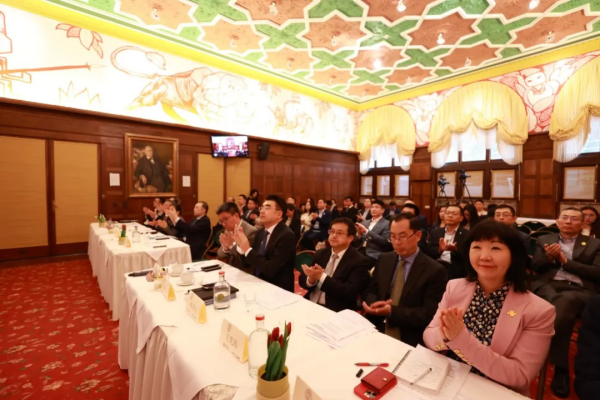
On June 14, 2024, in Brussels, Minister Peng Gang of the Chinese Mission to the EU told over 100 Chinese companies' representatives that China looks forward to "seeing the EU back to the right track of resolving concerns of both sides through dialogue, exchanges and consultation with the Chinese side as soon as possible."
He made the remarks as the China Chamber of Commerce to the EU (CCCEU) hosted its annual Europe-China Business Summit, themed "Europe-China Markets: Deeply Intertwined, Highly Interdependent." The summit addressed key issues and opportunities in the economic relationship between China and the EU.
Commenting on that European Commission pre-disclosed the level of provisional countervailing duties, and would impose on imports of battery electric vehicles (BEVs) from China, Minister Peng said many EU member states and a large number of European automobile manufacturers such as Mercedes-Benz, BMW, Volkswagen, and Stellantis have clearly opposed the EU's action.
"The Chinese business community is deeply disappointed and firmly opposes it. The Chinese side has made clear its solemn position that it is highly concerned about and strongly dissatisfied with the EU's practices. At the same time, we have noted that the European side also expressed its willingness to properly address the concerns of both sides through dialogue and consultation," he noted.
Peng said that the essence of China-EU trade and economic relations is "mutual benefit and win-win" while the two-way investment is complementary and keeps expanding. " however, the EU has been selling the false narrative of de-risking, trade imbalance, so-called overcapacity in China's new energy sector, subsidization, and so-called unfair competition," he stated.
He commented that China-EU pragmatic trade and economic cooperation "brings opportunities rather than risks" and China's mega-market and EU's Single Market of 450 million population offer great opportunities to each other. However, de-risking risks being turned into "de-opportunity", "de-cooperation" and "de-growth", he noted.
With regard to subsidies, Peng said using industrial subsidy policies to guide industrial development and adjust industrial structure is a common practice adopted by countries all over the world. "China's industrial subsidy policies are mainly directional, strictly abide by WTO rules, apply to all kinds of market entities, and all the enterprises can enjoy it equally. China has notified its relevant subsidies to the WTO timely and thoroughly. There is no subsidy prohibited by the WTO in China," he noted.
Peng concluded by emphasizing the importance of competition for improving market competitiveness and highlighted China is ready to promote mutually beneficial cooperation with the EU. He encouraged European businesses to engage more actively with the Chinese market, noting China's strong innovation capabilities and comprehensive industrial chains. Minister Peng Gang expressed optimism about the potential for collaborative growth and mutual benefits from sustained China-EU relations.
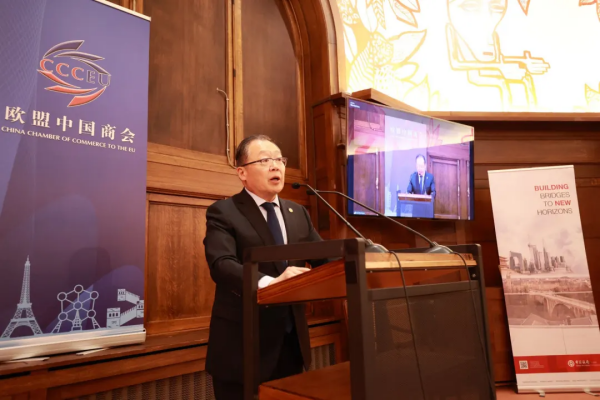
CCCEU Chairman Xu Chen pointed out in his keynote speeches that in recent years, economic and trade cooperation between China and Europe had become increasingly close. Against the backdrop of a complex and changing international situation, both China and Europe faced common challenges such as climate change and digital transformation. This summit provided an important platform for both sides to explore the potential for cooperation and discuss how to jointly build a green and digital future. Chairman Xu Chen believed that through dialogue and collaboration, China and Europe could overcome difficulties and seek joint development. He looked forward to this summit further deepening China-Europe relations, enhancing cooperation, and to building a future where both of two markets thrive together.
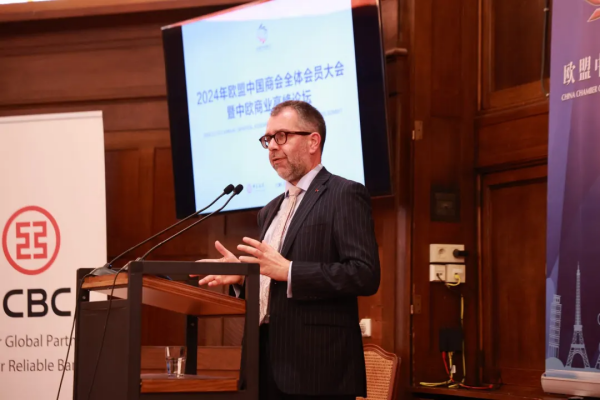
Professor Sven Biscop, Director of the Europe in the World program at the Egmont Institute, focused on the outlook for China-EU relations following the EU election during his keynote speeches.
He provided insightful forecasts and analysis, guiding the conversation on future interactions between the two entities. He firstly discussed the complexities of global geopolitics, particularly focusing on the strategic and geopolitical contexts affecting China's international relations. He argued that the dynamics of great powers, including China and the U.S., are normal, emphasizing that multipolarity and competition among great powers are inherent to international relations.He touched on the broader implications of China's rise, suggesting that China sought to reshape international rules to reflect new global realities rather than overthrowing the existing order. He called for rational management of international tensions and adherence to global rules to ensure stability and mutual benefits in global trade and economic relations. He also suggested that with the conclusion of the EU elections, China should seize the opportunity to look for prospects in the changing situation and seek to establish new China-EU relations.
Following Professor Biscop's presentation, the summit moved to two main sessions. Session I focused on "Challenges and Opportunities: Europe-China Green & Digital Economy Transition," moderated by Xu Chen. The speakers included Kenneth Fredriksen, Senior Vice President of Huawei Europe, Zhang Hui, Vice President of NIO Europe, Terence Xiong, Vice President for Global Development at BGI Group, and Dr. András Horváth, Counsel at Baker McKenzie.
Session II, titled "Business Chambers: Platforms for Cooperation," was moderated by Fu Xiangyang, Vice Chairman of CCCEU. The panel featured Xu Chen, Li Li, Chairwoman of ICBC (Europe) S.A. and Chairwoman of CCCEU Finance Working Group, Wang Xianhai, Vice Chairman of the China Chamber of Commerce and Industry in France, Guo Zhiyao, Chairman of the China Chamber of Commerce and Industry in Portugal, and Gwenn Sonck, Executive Director of the EU-China Business Association and Flanders-China Chamber of Commerce.
The summit concluded with a closing remark from CCCEU Chairman Xu Chen, who emphasized the importance of strengthening China-EU economic and trade relations and highlighted the chamber's role in facilitating cooperation and addressing challenges faced by Chinese enterprises in Europe. Executives or representatives from the CCCEU's more than 100 members participated in the assembly. Following the formal proceedings, attendees enjoyed a dinner and a Maotai tasting event, fostering networking and collaboration among the participants.
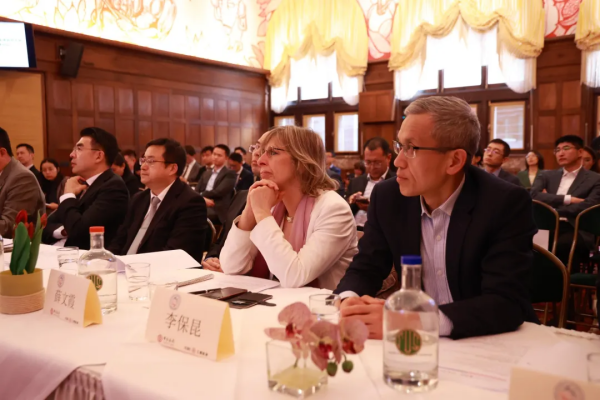
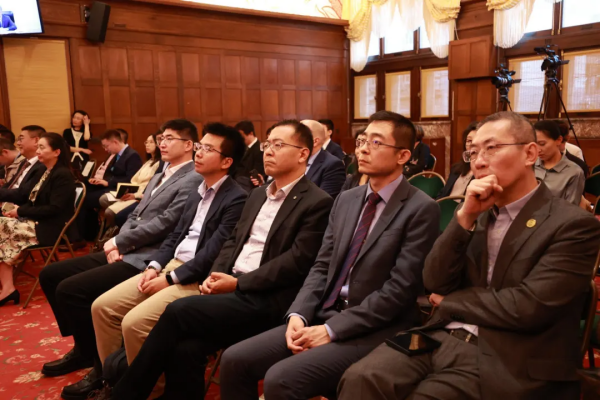
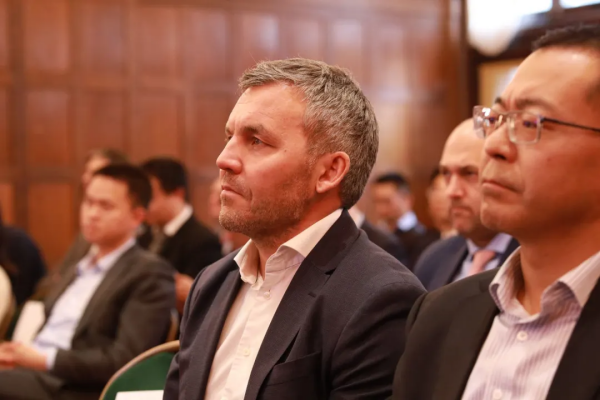
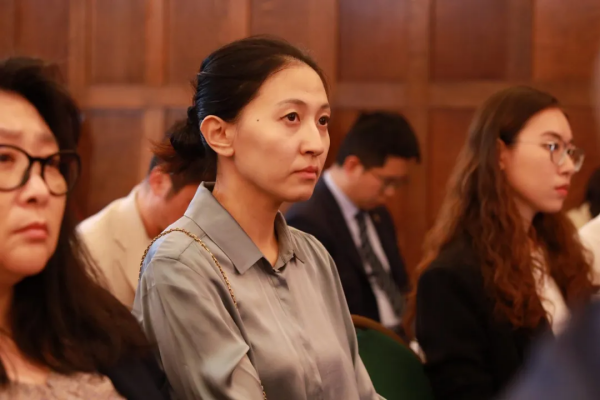
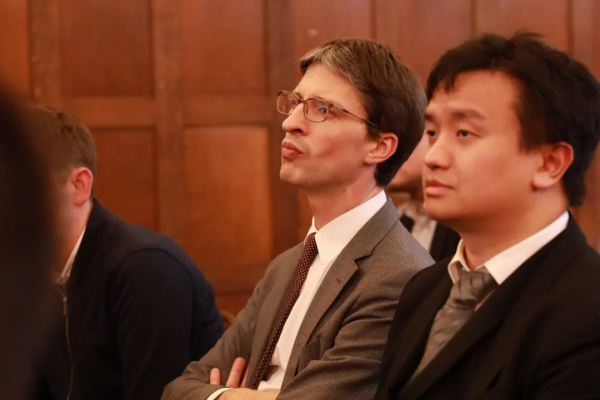
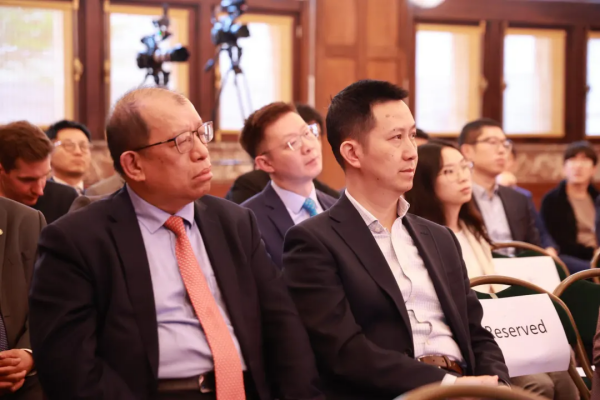
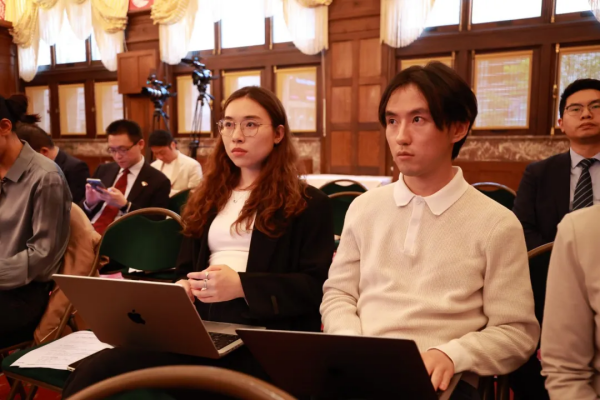

 Login
Login Login
Login CCCEU and Gunnercooke Successfully Host Webinar on CSDDD and FLR Compliance to Guide Chinese Businesses
CCCEU and Gunnercooke Successfully Host Webinar on CSDDD and FLR Compliance to Guide Chinese Businesses Cultivating responsible China-EU business leaders essential to tackling global challenges
Cultivating responsible China-EU business leaders essential to tackling global challenges



